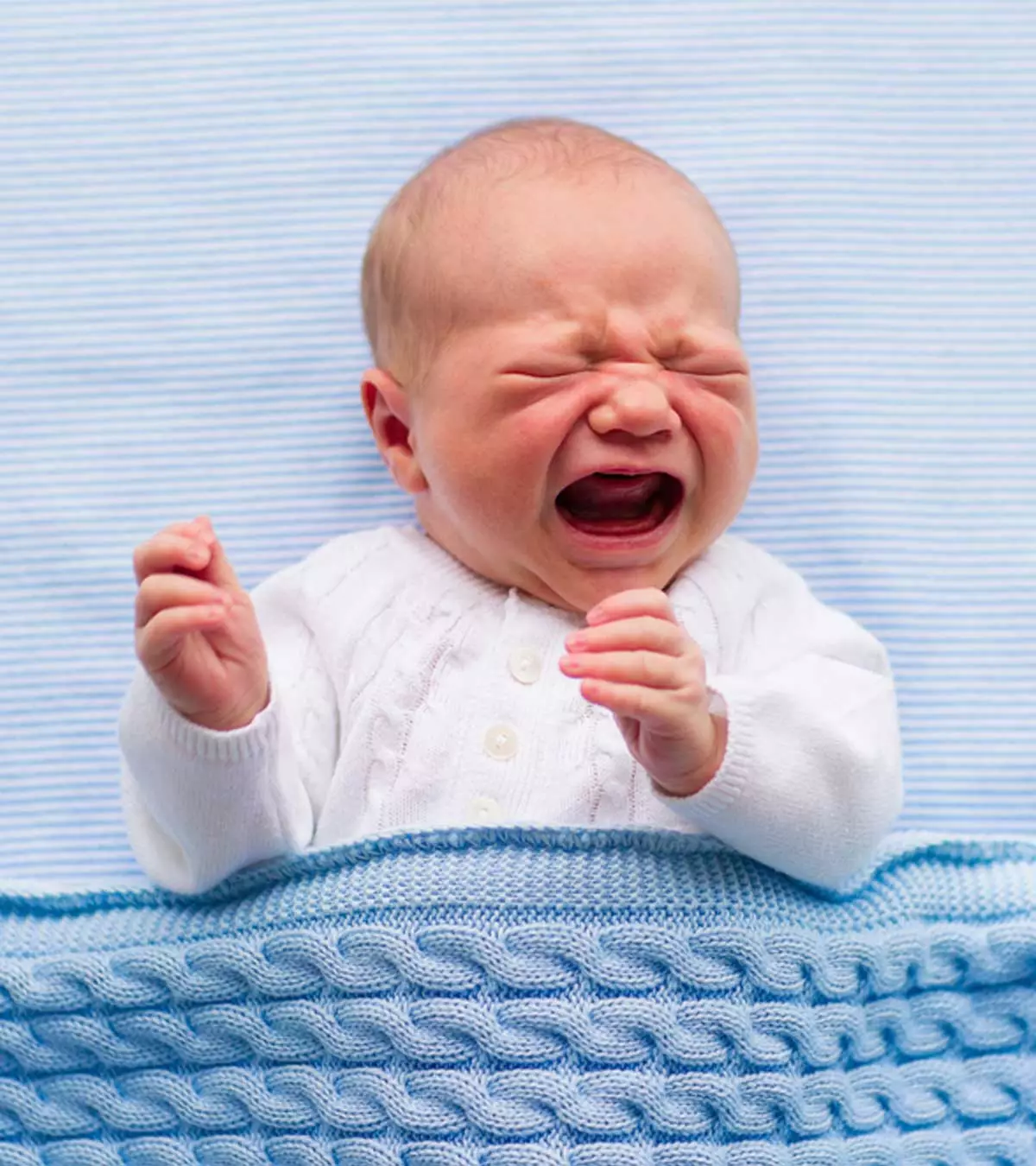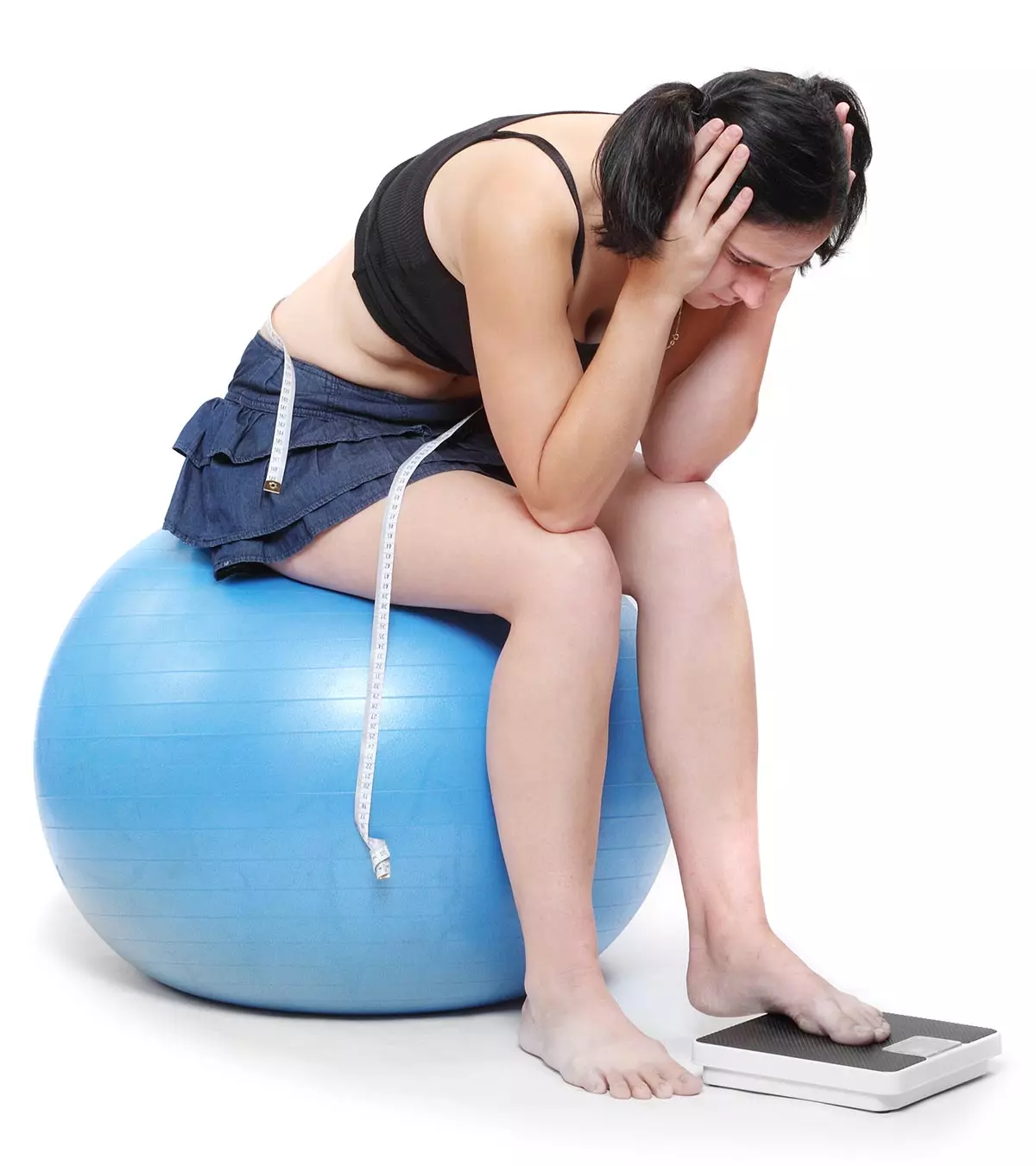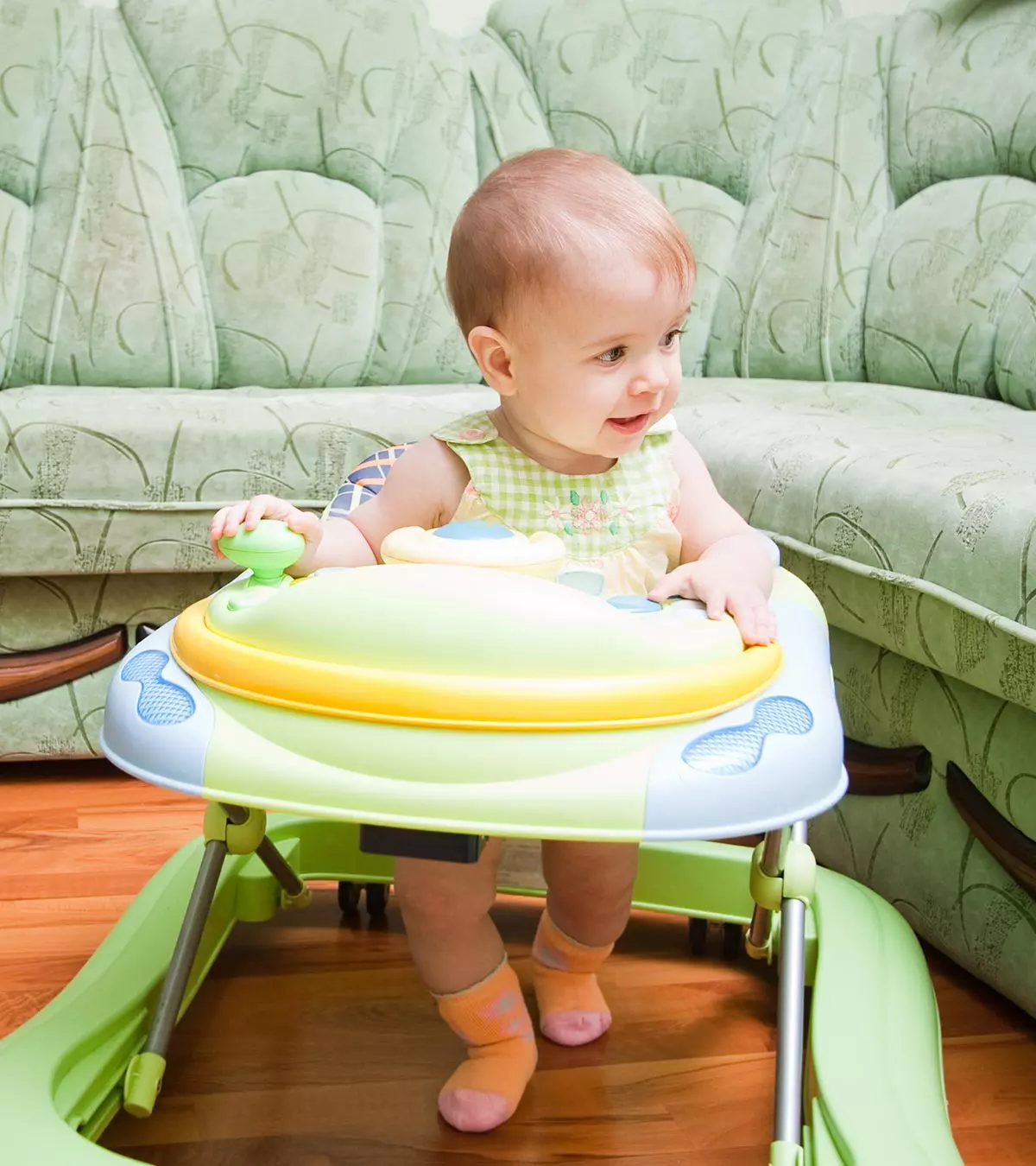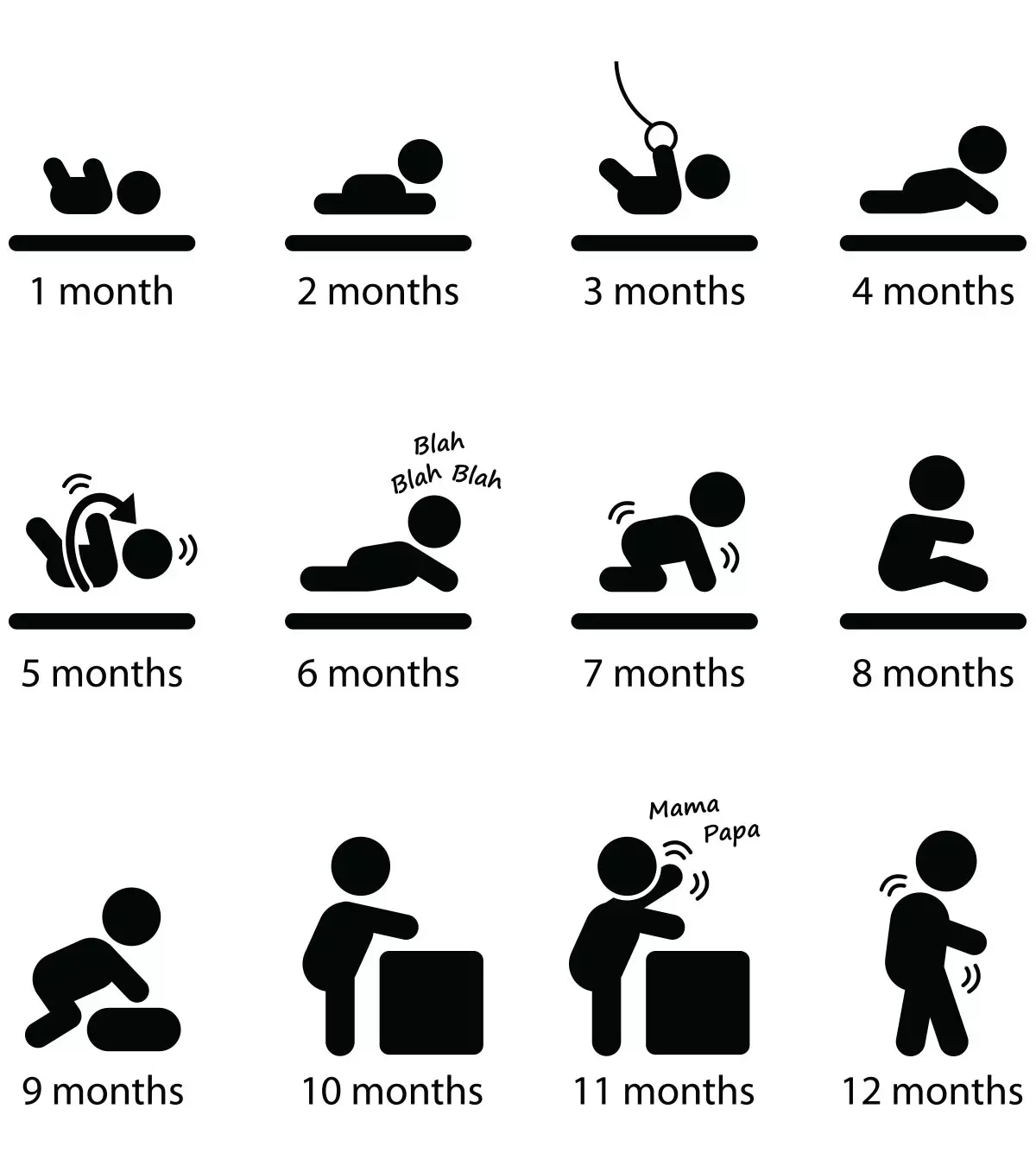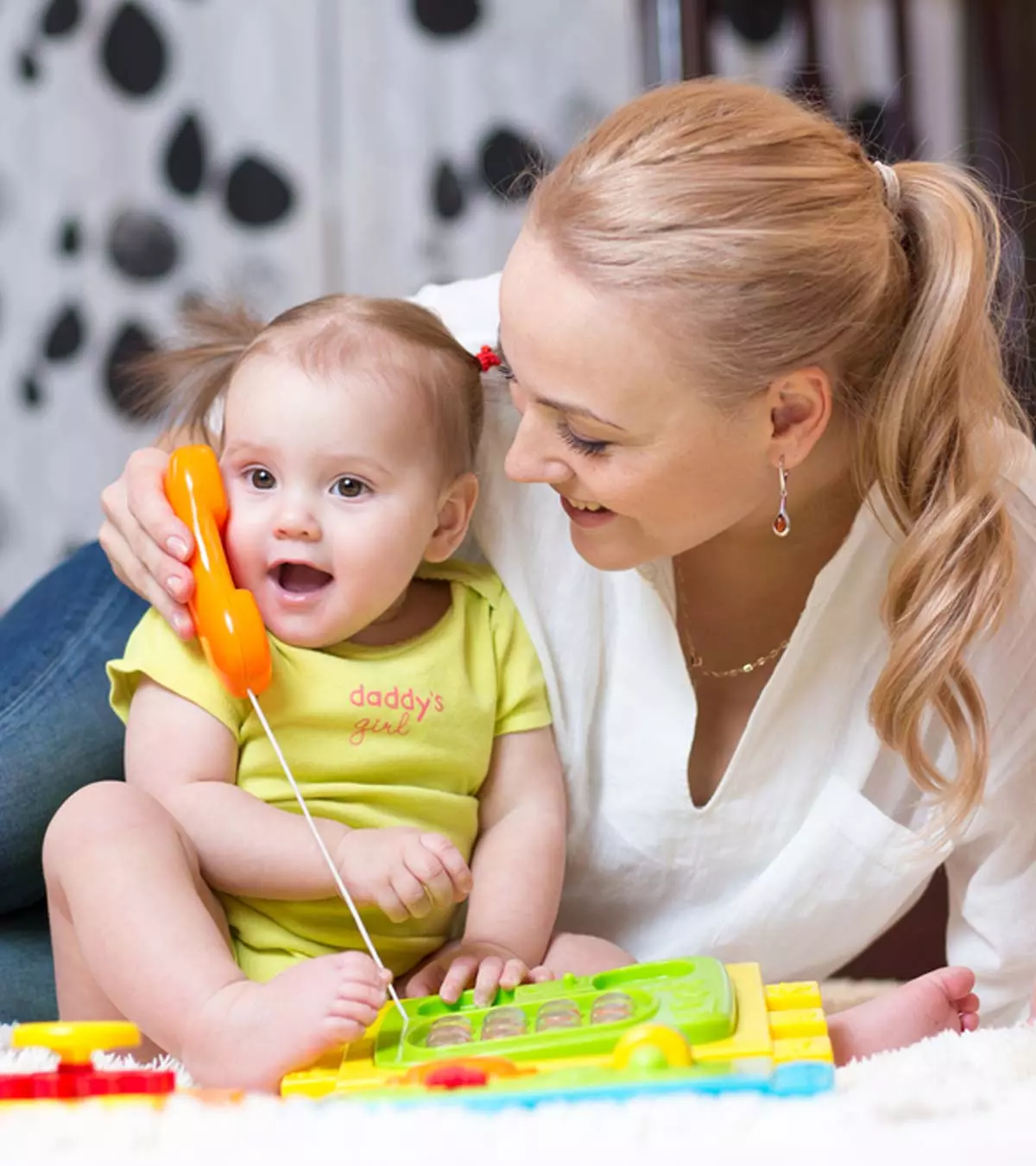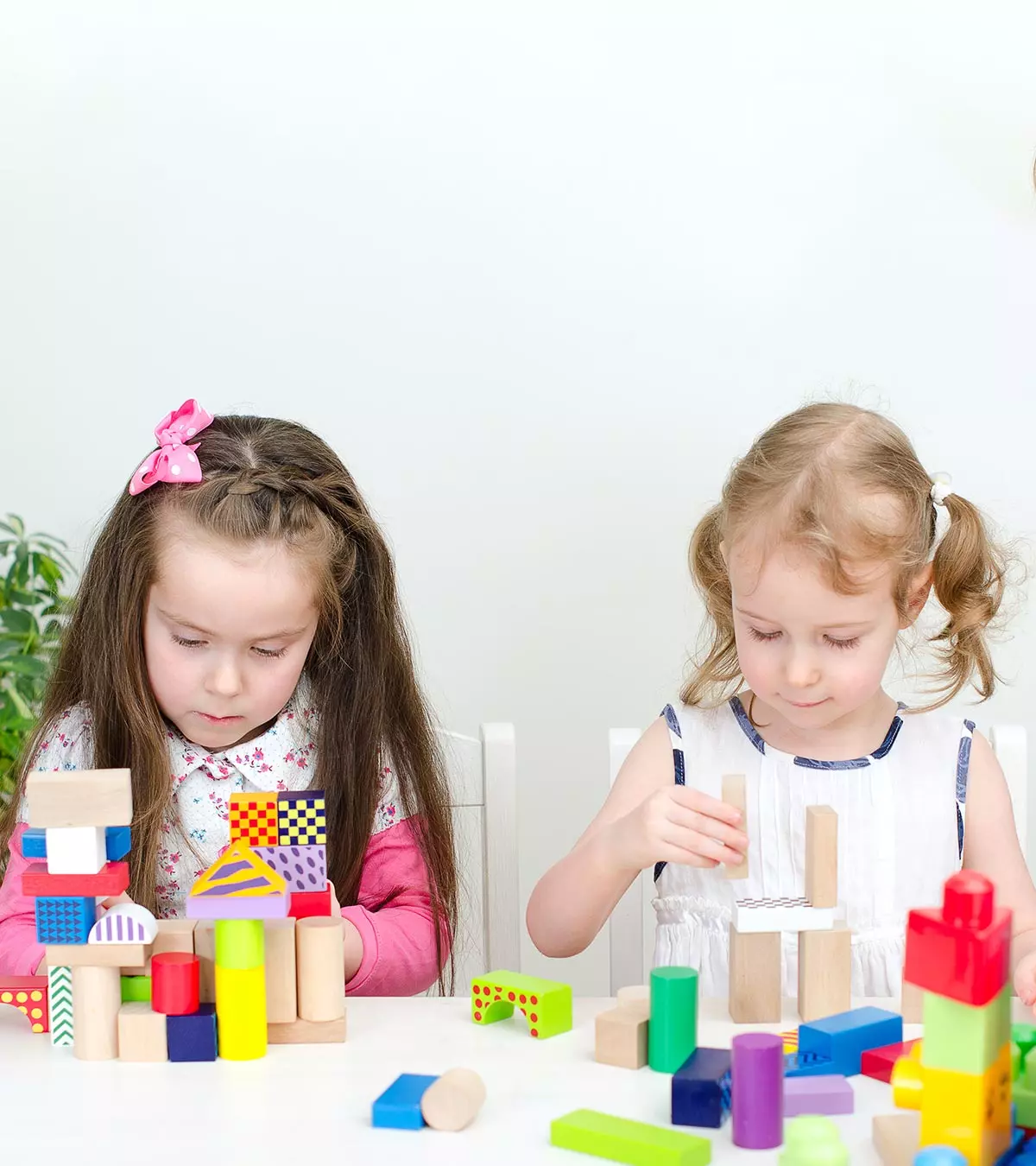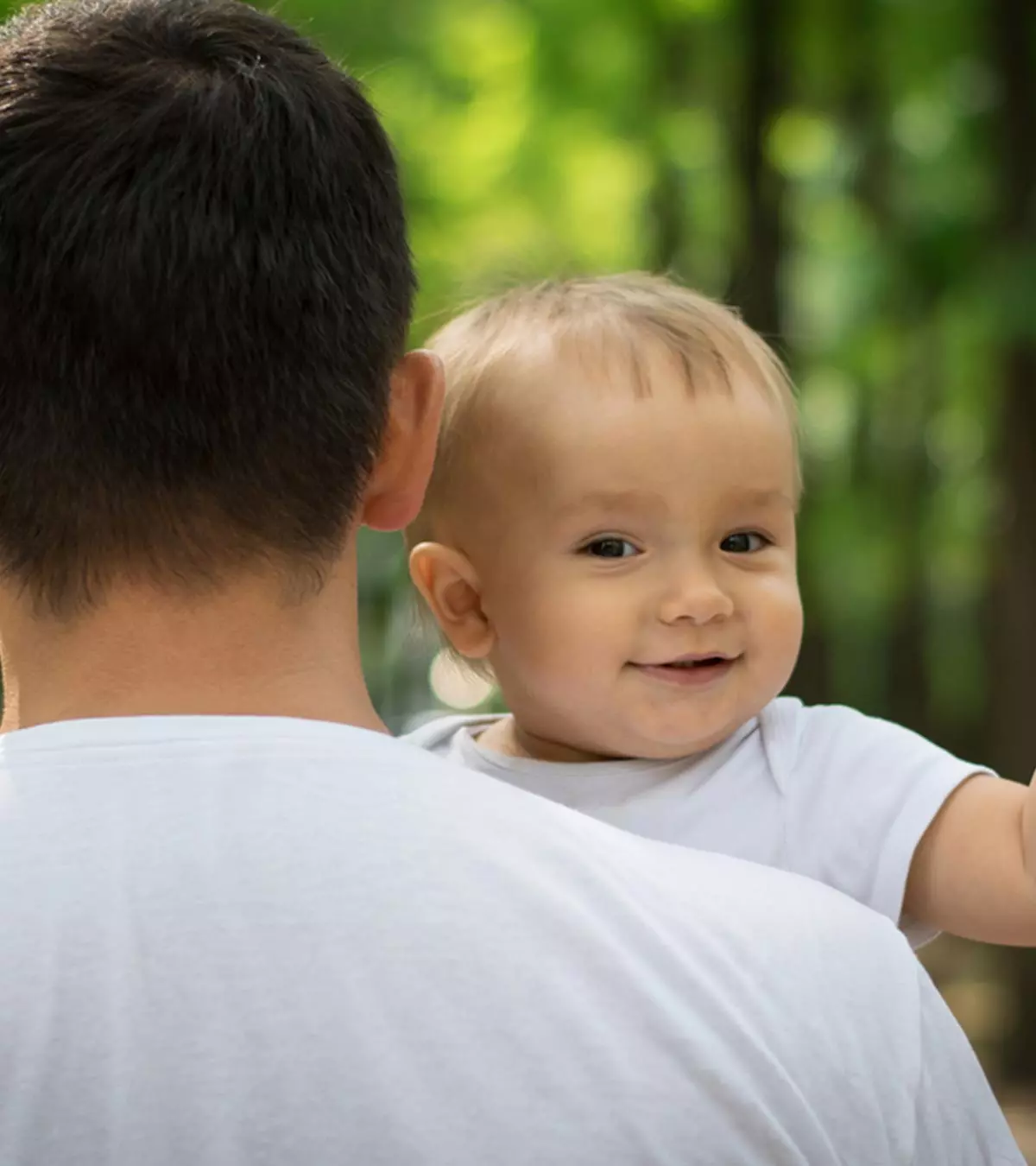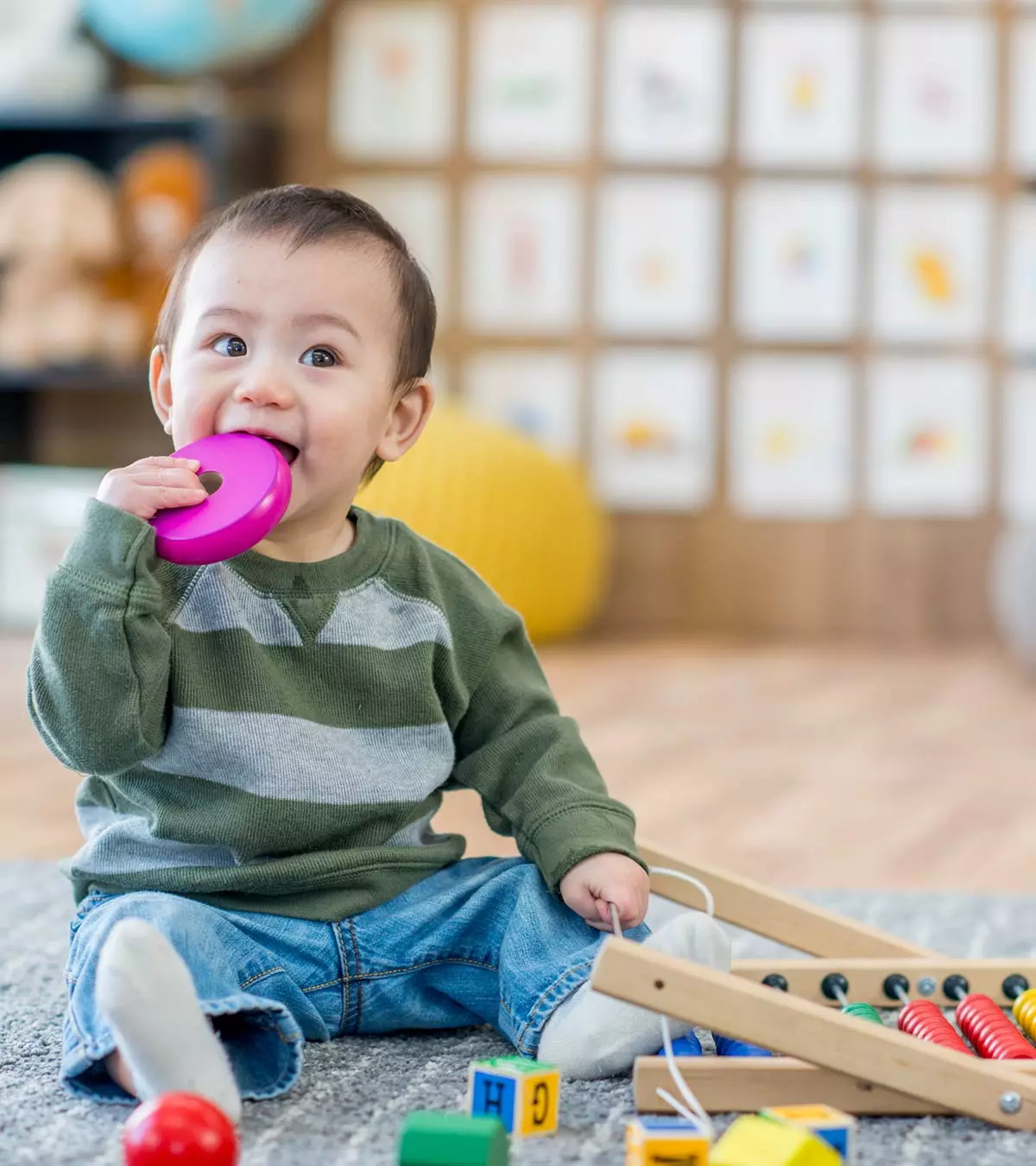
Image: MomJunction Design Team
While it is known that puberty is characterized by growth spurts, it is not uncommon for young boys and girls to experience emotional changes during puberty. Most emotional changes during puberty reflect a change in their behavior. Coping with these changes in their appearance and how they feel can be difficult for teenagers and their parents. Read this post to learn the causes, common behavioral changes, and tips for parents on dealing with these changes in their teens.
Key Pointers
- Puberty causes significant physical and emotional changes in a child’s body.
- Hormone levels increase and the body undergoes changes that lead to emotional changes.
- Common emotional changes during this time include mood swings, confusion, sensitivity, and identity crises.
- It is crucial to provide support and understanding to your child during this time.
- You can do this by actively listening, empathizing, and offering support.
Why Emotional Changes Occur During Puberty

Adolescence, or the teenage years, is often best described as an emotional roller coaster. It is a period between puberty and adulthood, filled with curiosity, exploration, and self-discovery.
Puberty is the physical process that signals the start of adolescence and marks the transition from childhood to sexual maturity. It begins with an increase in hormone production, which leads to changes that result in physical and psychological changes (1). The hormonal changes have a direct effect on the development, growth, and function of the brain, bones, skin, and sex organs. They also stimulate the libidoiThe sexual drive or desire of an individual , which is one of the major emotional triggers during puberty.
Emotional Changes During Puberty For Girls And Boys

Girls hit puberty around 8 or 13 years of age, while boys reach puberty at around 9 or 14 years, trailing behind girls by two years. However, both boys and girls can have an early or delayed onset of puberty. This changes their behavior and interaction at home and with others (2) (3).
While the biological or bodily changes are different for males and females, the emotional and cognitiveiThe mental process of learning and comprehending information through experience, thinking, and the senses changes are more or less the same. These changes also give rise to mood swings, which both teenage boys and girls experience. Girls may have more mood swings during their menstrual cycles due to hormone changes, while boys often experience energy shifts or behavior changes, like restlessness.
They are at their most vulnerable at this time and need all the help and guidance they can get from their parents and guardians. It will not be easy, but it is important for your teenager to listen and be present when they need you to help to make the transition simpler and less stressful for all.
 Do remember
Do remember11 Emotional Changes Your Teen Goes Through During Puberty
As a parent, you can make adolescence more fun and less stressful for your kid by understanding what your child goes through during that period and how you can help him or her with their emotional regulation. Here is a list of emotional changes that your child is likely to experience during puberty:
1. Emotional Changes That Occur Due To Bodily Changes

The onset of puberty triggers the development of secondary sexual organs in the body. These changes can be outwardly, such as the development of breasts and curves in girls, facial hair, a bigger Adam’s apple, and a shift in voice in boys. Some other physiological changes that occur during puberty are (3) (4):
- Both boys and girls start gaining weight and begin developing broader shoulders and stronger muscles.
- Girls start menstruation and growth of pubic hair, while boys have their penis and testicles growing bigger.
- Brain development is also one of the most significant biological changes during puberty.
- Pimples or acne is also a cause for concern among teenagers experiencing puberty.
- Early sexual maturation during puberty may even result in children being teased or bullied at school.
These bodily changes can be confusing and scary for a teenager, more so if they have no idea what is happening. Lack of awareness can lead your children to think that there is something wrong with them and make them feel embarrassed. It gets worse when they shy away from talking about it and start worrying.
How to deal with it
Awareness about the physical changes that they are experiencing is important to help kids deal with it efficiently. It is important for parents to talk to their kids about these changes as they near the age of puberty. Giving them age-appropriate books can be a nice supplement to talking, as it gives them a chance to explore and learn about the changes on their own.
Encourage them to ask any questions they have and discuss the fears. Talking about sexual changes and feelings can be tough, and even awkward for your kids – it is your duty as a parent to make them feel comfortable talking about it (5).
Introduce the topic subtly and in a way that gets their attention. Don’t push them to talk about it, as that will only add to their stress. Talk through it at their pace, not yours.
 Point to consider
Point to consider2. Mood Swings – Emotional Surges, Bouts Of Crying, Aggression:
Mood swings are common among teenagers. More often than not, the subtle changes in their feelings and emotions are due to the hormonal changes in their bodies. Your teen will seem relaxed and reasonable at one moment and may lose her temper the next.
Teenagers going through puberty are vulnerable. They may be irritable, easily excitable, and overly emotional, which can lead to impulsivity. They may cry for hours on what might seem like a silly issue, and get excited about something that an adult may find annoying.
Anger is one of the emotions that teens feel strongly. So much so that sometimes it may drive them to rebellion, making you feel like they hate you. Experiencing different emotions in a short span of time can be overwhelming and also confusing. That leads to frustration and anger, which comes off as aggression and in rare cases, violence (6).
How to deal with it
Emotional maturity is necessary for leading a healthy life. We are not born with emotional intelligence, we develop it. As a parent, it is your responsibility to help your child deal with the ebb and flow of emotions that they experience. Teaching them emotional regulation is necessary.
Always remember that these emotional changes are due in large part to changes in the hormone levels. So the extreme moods that your child displays are usually a result of that. If you help your child to navigate this often tumultuous period, it will pass as they move into the stage of young adulthood. The best way to deal with these mood swings is to calmly listen and not have an equal and opposite reaction. If your child snaps at you, don’t snap back. Take a minute to think about what they may be going through to behave that way. That also gives your child time to calm down.
Talk about what they did or said, without using an accusing tone, and clear the air. Let them know that they can always talk to you if they feel overwhelmed or confused (6).
Reiterating the importance of self-regulation of emotions for parents, Colin de Miranda, a licensed clinical social worker/therapist (LCSW), says, “I think it is really important that parents recognize that even though it may not look like it, their kids are trying. And that while they may blow up, it has more to do with their brain development and their ability to control chemical signals and the extraordinary amount of stress they’re facing than anything else”(6).
 Point to consider
Point to consider3. Identity Crisis – Conscious About Self
Children start experiencing new feelings and emotions during puberty. They become conscious of the changes in their body, especially girls, who typically develop faster than boys.
Teens may link their sense of self-worth with their body image and compare their bodies to others. It is the time for experimenting and experiencing different things to know themselves better and understand what makes them unique, their likes and dislikes (7).
The attempt to figure out who they are is also a result of the pressure to fit in. They may wonder if they should hang out with those they are most comfortable with or those who are most popular. They wonder if they should be a part of the soccer team or the math club.
How to deal with it
At this stage, teens may look up to their parents but they also develop role models outside the family, such as a friend or a celebrity, and try to be like them in some way. In simple words, your teenager needs a role model they can look up to for personal growth. If you have a good relationship with your child, he or she may want to be like you or your spouse. If your child is independent or even rebellious, they may look outside for role models, and that is typical.
It is important that you be observant and aware of their choices and significant relationships outside the home offer guidance when necessary.
4. Change In Relationships
Relationship dynamics change soon after puberty. Your kid may start spending more time with peers than with you. They may even feel embarrassed to be seen with a parent in public. It may seem that friends are more important than family to your child. This behavior is typical and part of the healthy process of separation and becoming independent.
For an adolescent, both friends and family are important. They want their peers’ acceptance, along with parents’ guidance and support. So, forcing them to choose between the two will add to their stress and may make parents seem controlling. This might make teens start questioning and rejecting their parents’ opinions.
According to a study, teens at around 12 years start to have conflicted relationships with their parents, which further increases during mid-adolescence (13-16 years) but improves as the teen approaches late adolescence at around 20 years (8).
Agnes Laurens, a writer and mother of three from the Netherlands, shares her experience navigating her eldest daughter’s teenage years. She shares, “I have two teenagers. One of them is 12 years old and she is going to high school now. But she is also an adolescent. With lots of characteristics of puberty. Sometimes she doesn’t listen to my partner or me. She ignores us completely if we want to correct her. Also, that is what puberty makes her. It is not really correct to say she totally ignores us, but a lot of times she does. She is also finding her voice in life, what she likes, and what possibilities she has (i).”
How to deal with it
Adolescents may not always do what adults say and may sometimes seem rebellious and disrespectful. Their desire for independence and a strong sense of autonomy drive them to make their own decisions. So, instead of rejecting their independence, try creating a collaborative relationship. Teach them about responsibility and set clear expectations. Let them also spend time with their friends, but oversee their activities to prevent them from straying into bad company. Again the concept of offering choices that you employed in the toddler years has relevance here.
 Quick tip
Quick tip5. Feeling Extremely Sensitive
Hormonal changes during puberty make children extremely sensitive to certain things. A small zit or acne on their face may seem like a major disaster, and being rejected by a boy or girl may feel like the end of the world. It becomes hard to predict what might trigger their emotions and upset them. This is also the phase where the adolescent can be easily influenced (9).
How to deal with it
It is hard to maintain your composure when dealing with an overly emotional teenager. Emotionally sensitive teenagers are easily overwhelmed by their feelings and are not in a position to comprehend logical reasoning, which makes it harder to counsel them (10).
When your child is feeling vulnerable, don’t preach. Instead, listen to their feelings and let them vent it out. Empathize by telling them that you understand what they are going through and that you are there to help should they need it.
6. Your Child May Feel Confused

Your child experiences a lot of new sensations and feelings during puberty. They may feel uncomfortable and even unsettled about the changes that take place in their body and the new feelings they experience because of it. If not addressed, your child may think that something is not right with them (9) (11).
How to deal with it
Teens who believe that something is wrong with them feel compelled to fix themselves, which can lead to emotional difficulties, including distorted body image. However, you can help your child develop a positive body image by talking to them about bodily and emotional changes and listening to them. Your child may not feel as awkward when they realize that the feelings are normal and are nothing to be ashamed of. To make it a little easier for them, you can even share your adolescent experiences to make them feel more understood (11).
7. Uncertainty And Indecisiveness
As in between switching from childhood to adulthood, teens are often unsure and confused about where they fit in. On the one hand, they feel emotions like fear, insecurity, and helplessness as children, and on the other, they think that they shouldn’t because they are grown-ups. The uncertainty often leads to indecisiveness.
While they are growing up, teens are also expected to act or behave in a certain way and be responsible. This expectation change can also be very confusing for them.
How to deal with it
Change is a good thing, but not when it is thrust onto someone. Understand that puberty is a gradual process and during that phase, you are dealing with someone who is part child and part adult. Don’t expect your child to change automatically after the onset of puberty. Help them adapt to the changes and expectations that come with it gradually. Talk to them and listen to their doubts and confusion. Give them little tasks of responsibility, but don’t expect them to get it right the first time. Give them time to adapt to that role slowly and gradually (12).
8. Sexual Feelings And Gender-Specific Mannerisms
Physical changes during puberty in males and females cause a surge of sex hormones during puberty. This causes children to have sexual feelings (13). Sexual maturity during puberty gives rise to new feelings and ideas that your child has not had before.
Also, they may start developing gender-specific mannerisms. For example, your little girl may start showing interest in dressing, makeup, and other feminine things, while your boy may want to indulge in activities like skating, sports, or bike riding that give him a rush. These, however, vary largely with personality traits. Your child may also be exploring sexual orientation and gender identity.
Your children may begin thinking about romantic relationships – how they see their peers from the opposite sex also changes. They may get aroused when they watch a romantic scene on TV, feel an attraction to the opposite sex due to infatuation, and even discover intimacy. Your child may at this stage of development discover that they are sexually attracted to their same-sex (4).
How to deal with it
Puberty is when the child starts to become sexually mature, but that does not mean your kids are thinking about having sex. They merely have sexual feelings, which can be confusing.
If your child is talking about crushes or dates, and asking you questions about it, it is time to educate them about sex and sexuality. The most important part is not to make them feel awkward or guilty about how they feel.
9. Peer Pressure – The Need To Fit In

Adolescents are vulnerable and easily influenced by others and constantly have the need to fit in. Teenagers feel compelled to do whatever it takes to be accepted by their peers, which encourages them to change the way they dress, speak, and behave socially. They may end up going the wrong path just to fit in (4).
Your child will spend more time with friends than with you, which influences his or her behavior. They may feel compelled to try new things like smoking and drinking, or even do drugs just to be ‘cool (4).
How to deal with it
You can’t avoid peer pressure. However, you can teach your child to resist following others to fit in or be seen as “cool.” Encourage them to develop their unique personality and stand for their beliefs. Help them understand the risks and benefits of their choices, guide them, but let them make their own decisions.
10. Contradictory Thoughts
The confusion and the indecisiveness that your teenager experiences during the transition period also translates into a conflict of interest at times. For example, the child in them might want to go to a movie with their parents, while the adult wants to exercise independence and go to the movies with friends instead.
How to deal with it
Conflicting thoughts can be troublesome, for they put the teenager in a difficult situation. Sometimes, they may feel compelled to choose one and feel the pressure of not hurting anyone in the process. Tell your kid that there is no wrong choice when they have to choose between an outing with parents and an outing with friends. They can decide to do what makes them most happy. More often than not, giving them the freedom of choice also develops their sense of fairness and judgment, enabling them to pick the right option. However, this does not mean that your kids do not need you anymore.
11. Your Child May Want To be Alone
Teenagers are in a transitional state during puberty and are trying to figure things out for themselves. While you would want them to talk to you, they want their space and may ask you to leave them alone. This behavior isn’t abnormal, but if your child spends excessive time alone, that may indicate that they are struggling beyond what is typical for this developmental stage (14).
How to deal with it
It is normal for adolescents to want to spend time alone. But if you think they are spending too much time inside the room and not with friends or family, it is a cause for concern. Talk to your teen about it and understand what motivates them to stay alone. Also, find out what they do when they are alone – be subtle about it. If you think it is a problem area, you may want to talk to a professional (14).
Frequently Asked Questions
1. Does puberty make boys more emotional?
During puberty, there is an increase in testosteroneiA sex hormone responsible for the development of secondary sexual characteristics in men which may lead to boys experiencing various fluctuating emotions. They may range from sadness and irritability to emotional outbursts (15). These are normal, but if you notice severe emotional problems such as anxiety, depression, or extreme mood swings, evaluation by a healthcare professional can be crucial to help you manage these changes (2).
2. How can I control my emotions during puberty?
Managing emotions is an important life skill for anyone to develop. The first step is to identify the feeling (positive or negative) and learn to accept it. Expressing one’s emotions can also help to manage them. Some ways to express emotions are through writing, art, music, physical activity, talking it out, and even crying (16).
3. How do hormonal changes impact mood swings during puberty?
When children go through puberty, their hormones undergo various changes, affecting their emotions. Their brains develop, leading to emotional and physical changes. Your teenager might start to have a better understanding of themselves and become more interested in romantic relationships. Sometimes, teenagers feel self-conscious about their appearance due to the hormonal changes that happen during puberty. Your teenager might also feel more confident and capable of handling new responsibilities and making their own choices. They may want to spend more time with friends and seek independence in certain areas of their lives. Some teenagers may feel upset or disappointed when they can’t achieve their goals, which can lead to negative emotions (17).
4. Do emotional changes during puberty contribute to the development of mental health disorders?
Changing emotions can sometimes lead to mental health disorders. During early puberty, young people might experience anxiety, eating disorders, depression, behavioral issues, and ADHD (18). However, it’s important to remember that genes, environment, and personal experiences also affect mental health.
5. Are there any cultural or societal factors that influence emotional changes during puberty?
Yes, how people and society think and act can affect how children feel during puberty. Ideas about how boys and girls should act, look, and interact with others can impact how teenagers understand and show their emotions. These social changes during puberty can lead to a heightened focus on social acceptance and identity formation.
6. How can schools and educators address emotional changes during puberty in a supportive manner?
Schools and teachers can help children with their emotions during puberty by teaching them about health, creating safe places to express themselves, and giving them access to support. They can have designated counselors or other adults who can help with any worries or questions the children might have (18).
7. What are some healthy ways for adolescents to express and manage their emotions during puberty?
Teens can handle their emotions in healthy ways during puberty by talking to someone they trust, doing exercises or sports, taking deep breaths or trying relaxation methods, writing or being creative, and getting help from professionals if they need it.
8. Do emotional changes during puberty affect academic performance?
When children go through puberty, their changing emotions can sometimes make it challenging to do well in school. They might have trouble focusing, staying motivated, or feeling confident. But if schools and teachers are supportive and understanding, they can help lessen the impact on their schoolwork.
9. What are some common misconceptions or myths about emotional changes during puberty?
Some people wrongly think that all teenagers are always in a bad mood and rebellious, or that their emotions are driven by hormones and thus not valid. Adults might think that teens do not listen to grown ups, and it is difficult to communicate with them. But in truth, every teenager is different, and they need a safe space to talk about their feelings. How we interact with teens plays a vital role in shaping their behaviors (19).
Emotional changes during puberty are completely normal. As a parent, you should stay informed and understand these changes to offer timely support and help your teens navigate this challenging phase smoothly. But if you find that they are drastic and they are engaging in harmful behavior, struggling with school, or struggling in relationships both inside and outside the home then you may want to bring in professional help.
Infographic: Puberty Is An Emotional Rollercoaster
During puberty, many physical and emotional changes happen in the body. As a parent, you can make this transition period easier for them if you know what to expect. In the infographic below, we bring a few emotional changes that children may go through. Identify and help your child cope with them
Some thing wrong with infographic shortcode. please verify shortcode syntax
Illustration: Common Emotional Changes That May Occur During Puberty
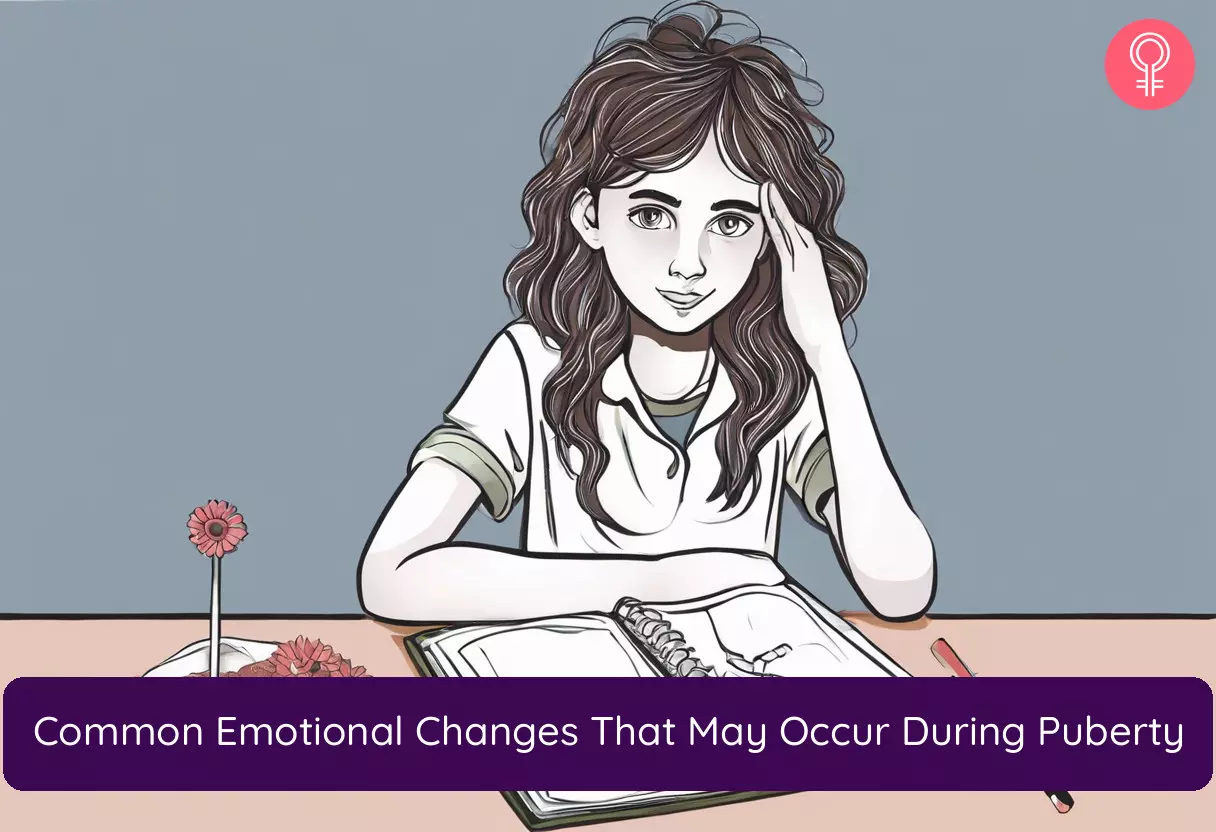
Image: Stable Diffusion/MomJunction Design Team
Puberty can be a confusing time. Children experience emotional ups and downs while their bodies also show various signs of growth. Learn how to cope with these changes in this video.
Personal Experience: Sources
MomJunction articles include first-hand experiences to provide you with better insights through real-life narratives. Here are the sources of personal accounts referenced in this article.
i. Puberty With Two Teenagers;https://medium.com/parenting-issues/puberty-with-two-teenagers-6bed98fc402
References:
- Puberty.
https://www.betterhealth.vic.gov.au/health/healthyliving/puberty - Puberty.
https://my.clevelandclinic.org/health/body/puberty - Logen Breehl and Omar Caban; (2025); Physiology, Puberty.
https://www.ncbi.nlm.nih.gov/books/NBK534827/ - Chapter 7: Adolescence.
https://open.maricopa.edu/psy240mm/chapter/chapter-7-adolescence-2/ - Sarah Nantono Bunoti et al.; (2025); Awareness of pubertal body changes among primary school children aged 10–14 years in Eastern Uganda; challenges and opportunities.
https://reproductive-health-journal.biomedcentral.com/articles/10.1186/s12978-022-01466-y - Teens and Anger.
https://childmind.org/article/teens-and-anger/ - Identity, Self Concept, Self Esteem, Peer Group Relationship.
https://egyankosh.ac.in/bitstream/123456789/20764/1/Unit-3.pdf - Susan Branje; (2018); Development of Parent–Adolescent Relationships: Conflict Interactions as a Mechanism of Change.
https://srcd.onlinelibrary.wiley.com/doi/10.1111/cdep.12278 - Moods: helping pre-teens and teens manage emotional ups and downs.
https://raisingchildren.net.au/pre-teens/mental-health-physical-health/about-mental-health/ups-downs - Michael F. Shaughnessy et al.; (1995); Working with the Emotionally Sensitive Adolescent.
https://www.tandfonline.com/doi/pdf/10.1080/02673843.1995.9747778 - Body image: pre-teens and teenagers.
https://raisingchildren.net.au/pre-teens/healthy-lifestyle/body-image/body-image-teens - Parenting children through puberty and adolescence.
https://www.betterhealth.vic.gov.au/health/healthyliving/Parenting-children-through-puberty - Sujita Kumar Kar et al.; (2015); Understanding normal development of adolescent sexuality: A bumpy ride.
https://pmc.ncbi.nlm.nih.gov/articles/PMC4477452/ - Help! My Teen Stopped Talking to Me.
https://childmind.org/article/help-my-teen-stopped-talking-to-me/ - Puberty in Boys: What to Expect.
https://www.atriushealth.org/healthy-living/blog/puberty-in-boys-what-to-expect/ - How to Help Teens Manage Their Emotions and Accept Their Feelings.
https://www.goodtherapy.org/blog/how-to-help-teens-manage-their-emotions-and-accept-their-feelings-0705175 - Emotional changes in puberty.
https://www.healthdirect.gov.au/emotional-changes-puberty - Puberty.
https://mentallyhealthyschools.org.uk/risks-and-protective-factors/lifestyle-factors/puberty/ - Teen Years: Truth Telling & Myth Busting
https://www.healthychildren.org/English/ages-stages/teen/Pages/teen-years-truth-telling-and-myth-busting.aspx
Community Experiences
Join the conversation and become a part of our nurturing community! Share your stories, experiences, and insights to connect with fellow parents.
Read full bio of Claudia M. Gold
Read full bio of Sagari Gongala
Read full bio of Harshita Makvana
Read full bio of Apoorva K






